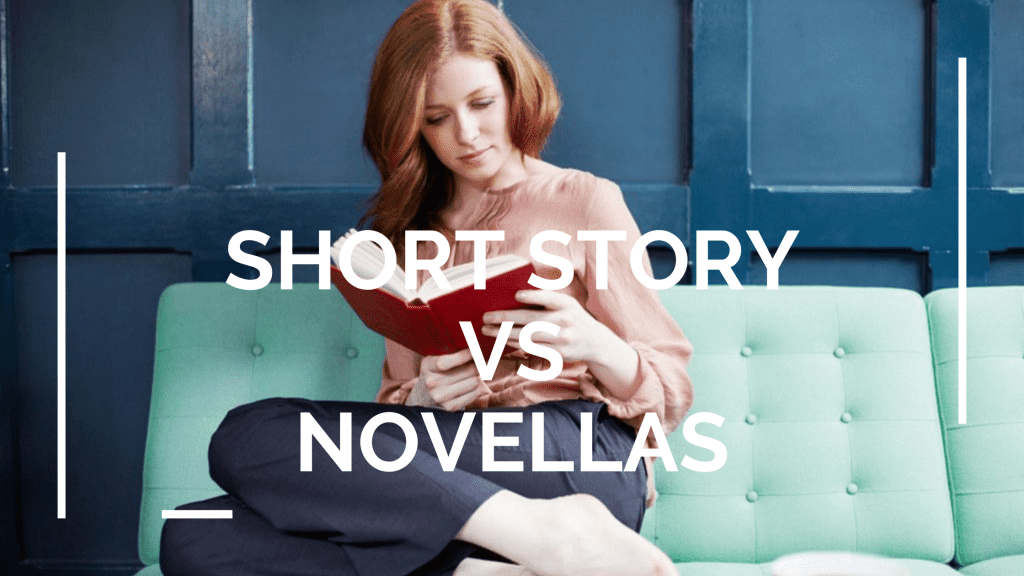Short Story vs Novella

Short Story vs. Novella – The Comparison Guide [2023]
Writing a successful story requires planning and creativity. Whether you’re writing a short story, or venturing into the world of novella writing, your story has to have purpose.
It needs to grab your readers’ attention with detail and character development while adhering to specific guidelines based on length.
To get started, authors and writers alike need to understand the distinction between short stories and novellas to create an engrossing narrative that engages audiences of all ages. So let’s explore the differences between these two genres so you can determine which direction is right for you!
Exploring Their Unique Narratives and Impact
In the vast landscape of literature, writers have always found innovative ways to convey their stories and captivate readers.
Two such compelling forms of fiction are a short story and novella. Both share similarities, but they differ significantly in length, structure, and storytelling possibilities.
In this article, we will delve into the essence of a short story and novella, exploring how they are crafted, the advantages of longer novellas, and when to employ shorter short stories to achieve the desired effect.
1. Understanding A Short Story and Novella
Short Story
A short story is a concise, self-contained narrative that typically revolves around a single character, event, or theme.
Unlike novels, short stories aim to deliver a powerful impact with limited words, making every sentence count.
The essence of a short story lies in its brevity, often ranging from 1,000 to 7,500 words.
Within this concise space, authors must skillfully craft character development, setting, conflict, and resolution to create a memorable experience for the reader.
Novella
Novellas, on the other hand, occupy the literary space between short stories and novels.
While there is no strict word count to define a novella, they generally span between 20,000 to 50,000 words.
This extended length allows authors to delve deeper into character backgrounds, explore complex plotlines, and develop more intricate settings.
Novellas offer authors a chance to create a more nuanced and elaborate narrative without the commitment required for a full-length novel.
2. How to Write A Short Story and Novella
Writing A Short Story
To craft a compelling short story, authors must focus on economy of language while maintaining emotional depth.
Every word must serve a purpose, and extraneous elements should be trimmed. A strong opening is crucial to grab the reader’s attention immediately, and concise character development should follow.
Effective dialogue and well-paced action are essential elements in creating a vibrant short story. The resolution should leave a lasting impact, prompting readers to reflect on the themes and messages conveyed in the tale.
Writing A Novella
When writing a novella, authors have more space to explore complex characters, intricate plotlines, and multi-layered themes.
While the pacing can be slower compared to short stories, it should still maintain a sense of purpose and avoid unnecessary detours.
Novellas afford authors the freedom to delve deeper into character psychology, provide more detailed descriptions of settings, and build tension gradually.
Nevertheless, the art of restraint remains essential even in longer works to maintain a captivating narrative flow.
3. The Advantages of A Longer Novella
Room for Depth
The extended word count of novellas allows authors to develop more complex characters and explore their motivations and emotions in greater depth. This added dimension can create a more profound emotional connection between the characters and the readers.
Nuanced Plotlines
With more space to unfold the plot, novellas can accommodate intricate story arcs and subplots.
This enables authors to engage readers with a captivating storyline that is neither rushed nor underdeveloped.
Exploring Themes
Novellas provide ample opportunity to delve into profound themes and explore their various facets.
Authors can use the extra length to subtly weave in underlying messages and provoke thoughtfulness in readers.
Short Time Commitment
For readers seeking a satisfying reading experience without investing the time required for a full-length novel, novellas offer a perfect solution.
They can be consumed in a single sitting, making them ideal for busy individuals or those looking for a quick literary escape.
4. When to Use A Shorter Short Story
Impactful Themes
When a story revolves around a single, powerful idea, a short story can deliver the message effectively.
The brevity allows for a focused exploration of the theme, leaving a lasting impression on the reader.
Experimental Narratives
Short stories provide an excellent platform for writers to experiment with unconventional narrative techniques.
Writers can play with structure, point of view, and other literary elements, pushing the boundaries of storytelling.
Limited Space for Exploration
Certain ideas are better suited for short stories due to their limited scope.
Attempting to stretch these ideas into a novella might dilute their impact, making short stories the better choice for concise, impactful storytelling.
Time Constraints
Writers may opt for short stories when they have limited time to dedicate to a more extended project.
Short stories allow them to practice their craft, experiment with new ideas, and complete projects more quickly.
Conclusion
A Short story and novella offer distinct advantages and serve different purposes in the world of fiction writing.
While short stories excel at impactful storytelling with limited words, novellas provide the space for more extensive character development, plot complexity, and thematic exploration.
Aspiring writers should experiment with both forms to discover their unique strengths and develop their skills in crafting captivating narratives.
Ultimately, whether it’s the brevity of a short story or the depth of a novella, each has the power to leave a lasting impression on readers and enrich the literary world with its distinct offerings.
Share